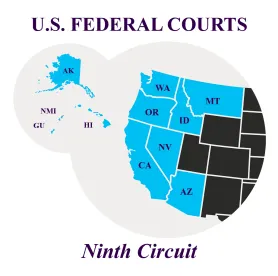A bit of deposition drama in the Northern District of California recently. In Kinzer v. Lifeaid Bev. Co., No. 21-cv-05589-EJD (VKD), 2021 U.S. Dist. LEXIS 237052 (N.D. Cal. Dec. 9, 2021), the Plaintiff, Mr. Kinzer, brought a putative class action, alleging that LifeAid Beverage Company contacted him, and the class, while his number was on the national Do-Not-Call registry. As relevant background, in mid-October, the Court determined that discovery in the case would be phased, with the first phase relating only to the merits of Plaintiff’s individual claim. All other discovery was ordered to be stayed until January 28, 2022.
However, Mr. Kinzer issued a 30(b)(6) deposition notice on LifeAid, which sought examination on a large number of topics, many of which were a bit broader than discovery relating to Plaintiff’s individual claim. LifeAid challenged this deposition notice on the grounds that much of the topics seeking examination were related to class discovery and not Plaintiff’s individual claims. The Court agreed, for the most part, and provided a detailed topic-by-topic breakdown of what Plaintiff was allowed to examine LifeAid’s 30(b)(6) witness on.
Specifically, the Court held that:
-
Testimony about complaints, lawsuits, regulatory actions, claims, and other disputes concerning LifeAid’s text messages during the past 4 years was not related to Plaintiff’s individual claim but more broadly encompassed any prior complaint or dispute “relating to text messages” associated with LifeAid. So, LifeAid did not need to present testimony on this topic.
-
Plaintiff also requested testimony about the companies LifeAid used to send text messages to any of his telephone numbers, including any text message aggregator. The Court agreed that Plaintiff was entitled to know whether LifeAid used a third party to send the at-issue text messages, however, the Court found the topic too broad as drafted. Thus, Plaintiff was only entitled to discover this information in relation to the texts referenced in his complaint.
-
Plaintiff additionally requested testimony on LifeAid’s policies and procedures: (a) “concerning text messages,” (b) “for updating consumer contact information,” and (c) “related to or concerning” the TCPA, including the DNC provisions and implementing regulations. Again, the Court agreed with LifeAid that this topic was objectionable because it “[was] not limited to practices and procedures related to the circumstances on which Mr. Kinzer bases his individual TCPA claims,” but was “much broader.”
-
A topic seeking testimony on any training that LifeAid’s employees and agents receive relating to the TCPA was also improper, and the Court stated that Plaintiff was only allowed to ask whether LifeAid contends that the text messages sent to him were made in error, including the nature of any training received by the person or persons responsible for the sending of the text messages.
-
However, it wasn’t all bad news for Mr. Kinzer. The Court allowed a topic asking for testimony regarding “all information and facts surrounding documents [LifeAid] will rely upon at the time of trial to establish prior express invitation or permission from [Mr. Kinzer].”
-
Similarly, the Court permitted questioning on “all settlement communications” related to “[Mr. Kinzer’s] individual claims in this action, including all responses from [Mr. Kinzer] concerning the same.” The Court disagreed with LifeAid that such testimony would be privileged or irrelevant. Questions about prior settlement offers made to Mr. Kinzer, including why such offers were made, were all fair game for the 30(b)(6) deposition.
Thus, the Court pretty much shut down all of Mr. Kinzer’s attempts to seek some premature class discovery (and axed most of his 30(b)(6) topics in the process). Yet, it’s worth noting that LifeAid didn’t win every argument they set out to make—and testimony squarely related to Plaintiff’s individual claim was all fair game.




 />i
/>i
